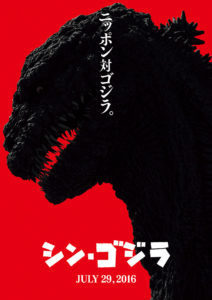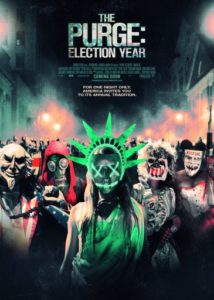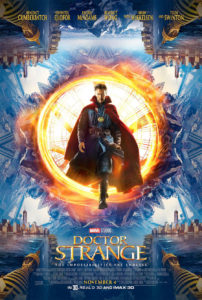Link to an article by Stephen Resnick & Richard Wolff:
Month: May 2017
Walden Bello – Europe’s Faustian Bargain with Big Finance
Link to an interview of Walden Bello:
Shin Godzilla
シン・ゴジラ [Shin Godzilla] (2016)
Toho Pictures
Directors: Hideaki Anno, Shinji Higuchi
Main Cast: Hiroki Hasegawa, Satomi Ishihara, Yutaka Takenouchi
A reboot of the Gojira/Godzilla franchise, this is really an excellent monster film. The best parts are about political symbolism. Having watched a number of dumb big-budget Hollywood superhero films recently, I was troubled by how many relied on a frame of a “post-political” society, where all important political decisions are just handed out (down) by unseen technocrats. I thought it would be more interesting to show the deliberations of politicians. Well, Shin Godzilla does exactly that!
The Gojira/Godzilla franchise has shown many different sides of the monster, from an uncontrollable force of destruction, to a helper of humanity, to an object of scientific study. Aspects of this film draw upon some of the ways scientific inquiry was vaunted in the 1990s films. But there is a much more political and serious tone to this film. Here, the monster is finally defeated by a mostly self-organized team of nerds that works together in parallel with the military to defeat the monster, following much destruction.
The political commentary in the film ranges from traditional franchise concerns about nuclear energy and weapons (Gojira/Godzilla in this film is a sea creature that self-mutates after eating nuclear waste, and is powered by nuclear fission), including the 2011 Fukushima Daiichi reactor meltdown, to post WWII pacifism (including Shinzō Abe‘s plan to re-write the Japanese constitution to step away from pacifism), the (real or perceived) subordinate relationship of Japan to U.S. political interests, corporatization and putting profits over people, and more. While the film is sometimes a bit ridiculous — often in a good, campy way, like the wonderfully unrealistic depiction of the monster with bulging eyes and a bulk that still resembles an actor in a rubber monster suit — mostly, this film is expertly delivered. Central to the story is the way it presents existing political institutions as being unable or unwilling to confront current circumstances. The monster is a symbol of the internal contradictions of Japanese society (and capitalism). It would not be too much to say that this is one of the most Leninist films of its day!
The Purge: Election Year
The Purge: Election Year (2016)
Universal Pictures
Director: James DeMonaco
Main Cast: Frank Grillo, Elizabeth Mitchell, Mykelti Williamson, Joseph Julian Soria, Betty Gabriel
The Purge series falls into the tradition of relatively low-budget horror films with dodgy technique that use the “lowbrow” appeal of the film as an opportunity to critique the upper classes. The first film in the series is rather poor, caught up in empty suspense for its own sake (and presumably, due to budget constraints too). But the second film, The Purge: Anarchy, is actually quite good — even going so far as to feature a Black Panther-like group presented sympathetically. The third film, Election Year, is pretty raw and blunt with its message. There is no nuance. And yet, the bad guys are bad guys and the good guys are worth rooting for. The good guys are never saintly. They all face moral challenges, and most are presented as having overcome mistakes of their past. The bad guys are truly monstrous, employing self-serving religious dogmatism and the fascist concept of redemptive violence to further a thinly-veiled class war against the poor — notably along racist lines. The script seems flawed, in that the characters are slow to pick up on plot points that are quickly apparent to the audience. There is also a group of annoying teenager characters who all seem entirely superfluous to the main plotline. So, while falling short of the previous film, this one is still better than the first Purge film. It may be simplistic, but, unlike most commercial films, it actually has a moral center that isn’t stupid.
Doctor Strange
Doctor Strange (2016)
Walt Disney Pictures
Director: Scott Derrickson
Main Cast: Benedict Cumberbatch, Tilda Swinton, Chiwetel Ejiofor, Rachel McAdams, Mads Mikkelsen
Another superhero film. Much of the plot is an ersatz version of anarchist writer Ursula K. Le Guin‘s fantasy classic A Wizard of Earthsea (1968). But there is plenty of good humor here. Tilda Swinton proves yet again that she is one of the best actors in mainstream cinema. While her character, and others, at first seem to be yet another example of the dubious practice of casting white people in “Asian” roles, the film actually addresses that concern in a satisfactory way. In the end, this film is quite average, maybe *slightly* above-average in a relative sense. There are certainly worse big-budget superhero movies out there.
M.G. Piety – Academic Bullying: the Vacuum of Moral Leadership in the Academy
Link to an article by M.G. Piety:
“Academic Bullying: the Vacuum of Moral Leadership in the Academy”
Most of this is general enough to apply outside academia. Interesting that she cited Plato in one place about just behavior, but, rather than another philosopher like Rousseau, cites cognitivist scientists regarding trusting human nature.
Carl Hart Quote on the War on Drugs
Quote of Carl Hart from the interview “Neuroscientist Carl Hart: We Need to Stop Jeff Sessions from Escalating the Racist War on Drugs”:
CARL HART: Well, what it means is that he—well, as you know, under [former U.S. Attorney General] Eric Holder, Eric Holder has suggested—or his memo said that we shouldn’t engage in those mandatory minimums [i.e., mandatory minimum criminal prison sentences]. So he gave judges flexibility, whereas [Attorney General] Jeff Sessions is encouraging the judges to go back to mandatory minimum. What that means is that people will get harsher sentences for drug-related violations now. And what that means ultimately—as [Anthony] Papa has said, we all know the drug war didn’t work. That’s not entirely true, because the drug war did work for certain segments of our population. And that’s where the crux of this policy really needs to be interrogated. It allows—Jeff Sessions is allowing us or is using drug policy to separate the people who we like from the people who we don’t like. And it provides a way to go after those people we don’t like, usually poor minority folks, without explicitly saying we don’t like those people. And that’s how drug law—that’s how drug law or drug policy has been enforced in this country. And so, if we allow Sessions to turn back the hands of time, then shame on all of us. The blood is on all of our hands, because we know the consequences of his proposed actions.
(Emphasis added)
Bonus link: Mladen Dolar on “University Discourse”
Jailed Reporter Barrett Brown on Press Freedom, FBI Crimes & Why He Wouldn’t Do Anything Differently
Link to an interview of Barrett Brown:
Bonus link: “First They Came for Assange”
Chip Gibbons – The Imperial Bureau
Link to an article by Chip Gibbons:
Lars T. Lih – From February to October
Link to an article by Lars T. Lih:



